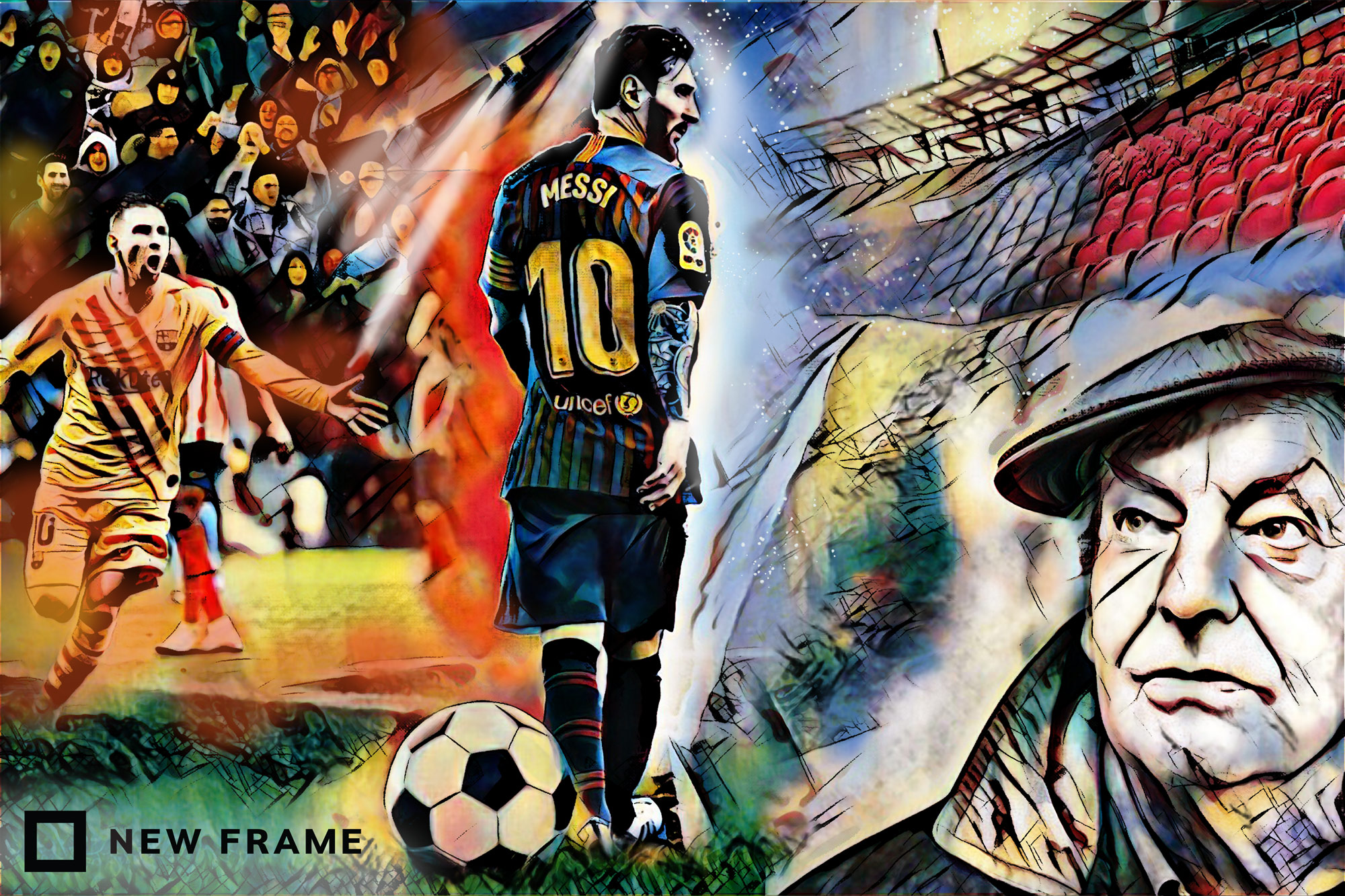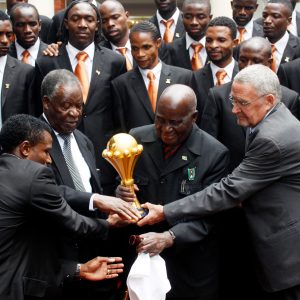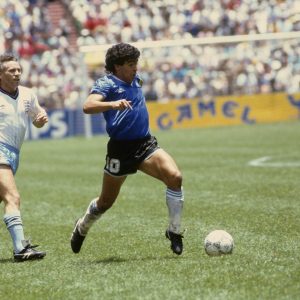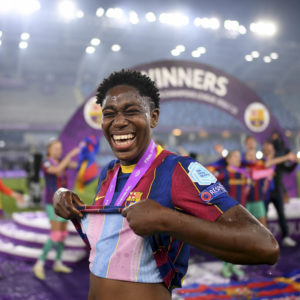The football wizard that is Messi
In Text Messages this week, Sid Lowe’s collective writings on Lionel Messi would be the equivalent of Uruguayan writer Eduardo Galeano’s book: a masterful celebration of mastery.
Author:
12 August 2021

It has long been fashionable in some quarters to deride sport as an activity for those whose physical gifts and excellence are inversely proportional to intelligence, grace and sophistication. That dangerous misconception is a pitiable illusion that deprives its holders of beauty, joy and experiencing in a full-bodied, whole-being way, what it can mean to be human.
In splendid contrast, Uruguayan writer Eduardo Galeano understood what the physical meant and what sublime aesthetics, mental brilliance and moments of extreme genius are summoned in the cauldron of physical competition. Poet, novelist, essayist, writer, socialist and thinker extraordinaire, Galeano is possibly best known in the English-speaking world for his collected pieces in Football in Sun and Shadow (Fourth Estate, 1997; translated by Mark Fried).
In the second-last paragraph of the book he explains why he wrote it: “By writing, I was going to do with my hands what I never could accomplish with my feet: irredeemable klutz, disgrace of the playing fields, I had no choice but to ask of words what the ball I so desired denied me.” He certainly succeeded because it is a classic of wide knowledge, deep observation, acute analysis and mindful reflection, all expressed with the pithiness, compassion, irony and wit of a great writer.
Related article:
Galeano presents his credo to the reader at the front, in the “Author’s Confession” that kicks off the book. “Years have gone by and I have finally learned to accept myself for who I am: a beggar for good football. I go about the world, hand outstretched, and in the stadiums I plead: ‘A pretty move, for the love of God.’
“And when good football happens, I give thanks for the miracle and I don’t give a damn which team or country performs it.”
That last sentiment is key to Galeano’s love of and insight into the game: for him, always a beautiful game. He had the privilege to be an amateur in the first, best but now sadly unused sense of the word and notion – someone who engages in a pursuit for the love of it. (After all, amateur descends from the Latin amare, to love, and amator, a lover.)
Of course, none of this blinded Galeano to the way the game was heading. The book’s final vignette, dated “Montevideo, Summer 1995”, notes: “Professional football does everything to castrate that energy of happiness, but it survives in spite of all the spites. And maybe that’s why football never stops being astonishing.”
‘All you can do is applaud’
Galeano died at 74 in April 2015, so in his last decade was able to see and revel in the luminous beauty, sinuous grace, quicksilver intelligence and supreme harmony of the Barcelona football team (Barca) of those years, and of its greatest star, Lionel Messi. Galeano would have wept over the Greek tragedy that has befallen both Barca and Messi as the latter leaves the club where he has spent the past 20 years and heads off to play for Paris Saint-Germain (best known as PSG).
He would have written with empathy, as he does of Maradona in the book’s longest entry. “In the frigid football of this century [20th], which detests defeat and forbids all fun, that man was one of the few who proved that fantasy can be efficient.” So too with Messi, who as with TE Lawrence (“Lawrence of Arabia”), is a special sort of visionary: “The dreamers of the day are dangerous men, for they act out their dream with open eyes, to make it possible. This I did.” (Lawrence in his book Seven Pillars of Wisdom, his account of the Arab revolt against the Turks during World War I.)
Related article:
Today’s equivalent of Galeano is Sid Lowe, who writes on Spanish football for The Guardian. Either the newspaper itself or some other enterprising publisher should gather all Lowe’s match reports, blogs, columns and analyses about Barca and Messi and publish them in book form. It would be a feast, telling of great – sometimes superhuman – deeds, bravery, endeavour, faith, determination and sheer beauty, all in superb prose underpinned by a deep love of the game.
Here is Lowe on one of Messi’s most memorable goals, against Atlético Madrid in December 2019:
“When Lionel Messi scored a late winner at the Metropolitano on the eve of winning his sixth Ballón d’Or, approaching the Atlético Madrid area like Luke Skywalker flying into the trenches on the Death Star, Diego Simeone followed the move from the touchline. Urging his players to stop Messi but knowing deep down that they couldn’t, he said that he had been gripped by a feeling of inevitability. ‘All you can do is applaud,’ he said and so, like so many others before but too few since, he did.”
Related article:
And here, in a valedictory piece in The Guardian on 10 August, is Lowe’s masterfully concise impression of the football wizard that is Messi:
“There’s the touch, the ball treated gently. The vision, seeing the pass no one else can. Playing the pass everyone else can, but doing it so well it can’t be stopped. The way he doesn’t so much kick the ball as watch it dash alongside him like a faithful, enthusiastic puppy.”
But the most poignant words come from Messi himself, at the press conference in the first week of August at which he announced he was leaving Barca. Plain, unvarnished, from the heart, they resonate with the clarity, strength and purpose of a Hemingway paragraph, or a bit of writing by Dashiell Hammett. Here is part of Messi’s goodbye:
“I wouldn’t have imagined my departure this way. I would have liked it to be with people there, to have heard one last ovation, felt that affection, celebrated a goal together. I missed them over this year-and-a-half and I go having not seen them. If I had imagined leaving it would have been with a full stadium, saying goodbye the right way.”
At Hammett’s funeral the playwright Lillian Hellman, his long-time love from whom he was generally separated, said: “He was a man of simple honour and bravery. Blessed are they, I hope, who leave good work behind.” Those words apply equally and already to Lionel Messi.



